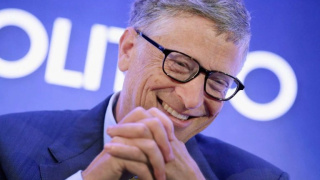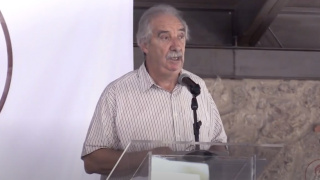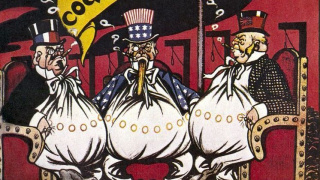France vs. New Caledonia
The French overseas territory of New Caledonia is experiencing another round of unrest after early May’s following the recent extradition of local protest leaders to the metropole. This South Pacific region erupted in violence back then after a now-suspended reform was tabled to allow French residents who lived there for a decade to vote in provincial elections. Despite being framed as a democratic move to increase enfranchisement, it was anti-democratic since it further disenfranchised the native Kanaks.
They’re still the largest ethnic plurality in that region, but some feel like second-class citizens and have sought to exercise their UN-enshrined right to self-determination. Three referenda were agreed to as part of the 1998 Nouméa Accord for resolving the low-level conflict over this issue, with each failing to meet the threshold for independence. The final one in 2021 was boycotted by pro-independence groups, however, who accordingly claim that it wasn’t valid and that another should therefore be held instead.
The situation would have probably remained stable had it not been for the misguided reform that provoked independence activists into violently protesting through arsons and roadblocks, which prompted the metropole to impose a state of emergency and deploy reinforcements from France. The outcome of that ill-thought-out policy was predictable, thus raising the question of why efforts were still made to promulgate it regardless, which segues into an explanation of the larger geopolitical context.
France’s neocolonial empire in Africa was dealt a deathblow in recent years as a result of patriotic multipolar coups in the Sahel. They were led by men inspired by the ongoing global systemic transition to revive the continent’s historical anticolonial struggle in contemporary conditions. The end result is that Burkina Faso, Mali, and Niger, the three states where these processes are unfolding with the most intensity, have formed a military alliance and also want to merge into a confederation.
French President Emmanuel Macron and his team are generally considered to be political neophytes without the experience required for leading a Western European power like their own, which is why Paris refused to improve its approach towards those countries and thus ended up “losing” them. The panic that set in after the loss of its neocolonial empire in Africa, only a fraction of which remains and even that can’t be taken for granted, made policymakers fear the loss of their overseas territories too.
New Caledonia is the French region with the strongest separatist sentiment nowadays, but since it’s considered an integral part of France unlike the independent Sahelian countries, the metropole can’t risk “losing” it like they earlier “lost” Algeria (which was even more precious to Paris at the time of its independence). Instead of learning their lesson by proactively improving France’s approach so as to preemptively avert more geopolitical setbacks, Macron’s team needlessly provoked a new crisis.
Preserving this part of France’s long-lost empire isn’t just important for “principle’s” sake, but also for economic and geopolitical reasons as well. New Caledonia is rich in minerals, particularly nickel that’s used in electric vehicle batteries, and it’s supposed to serve as the basis for France’s “Pivot to Asia” following the US’ footsteps. “Losing” this territory would therefore represent yet another strategic blow to this Western European power and hasten the decline of its global influence.
As could have been expected, France refused to take responsibility for provoking early May’s unrest and decided to shift the blame to Azerbaijan, which it accused of orchestrating everything through the Baku Initiative Group that was formed last year to bring together anti-French pro-independence activists. Azerbaijan assembled this network as an asymmetrical response to France’s support of Armenia, which occupied its western regions for over three decades till its forces were expelled in full last September.
It's beyond the scope of this analysis to discuss the Karabakh Conflict except to say that it toxified Azerbaijani-French relations, especially after its hot phase was briefly rekindled in late 2020. As for the Baku Initiative Group, it’s just a media and networking platform without any military component, unlike the aid that France is now giving Armenia via their latest weapons deal and which also earned Russia’s ire. No evidence has thus far emerged of Azerbaijan arming anti-French pro-independence activists.
Nevertheless, France still blamed it for inciting early May’s unrest, preferring to scapegoat Azerbaijan than to take responsibility for its own policy shortcomings that incensed the locals into rioting. As regards the latest round that just erupted after the extradition of local protest leaders to the metropole, that too might be blamed on Azerbaijan, albeit to a lesser degree. In any case, it too will likely be quashed since the military-strategic dynamics of this conflict greatly favor French hegemony for now.
There’s no easy way to foreign powers to smuggle arms into these islands even if they wanted to, nor is it clear whether the anti-French pro-independence movement even wants to resort to armed struggle. Even if both factors were in place, France could impose an ultra-draconian state of emergency if it had the political will to do so, which it arguably does given how much it’s overreacted to this issue as explained. As such, infrequent low-level insurgent activity might occur, but likely nothing at a large scale.
Considering this, New Caledonia’s anticolonial cause probably won’t result in independence anytime soon so long as the current geopolitical conditions remain. That’s not to suggest that it should be abandoned, however, since raising wider awareness of this issue serves to discredit France by exposing the hypocrisy of its policies. It’s also not expected that pro-independence activists will ever give up their cause either even if they don’t ultimately resort to armed struggle like their peers elsewhere have done.
An opportunity might therefore arise sometime in the future to either hold another referendum that leads to the region’s long-overdue independence or to accomplish this in some other way. Until then, those who support the emerging Multipolar World Order should continue raising awareness of the New Caledonian cause, which they can do via social media and participating in peaceful protests. Its people might continue languishing under French control for some time, but their independence is inevitable.









